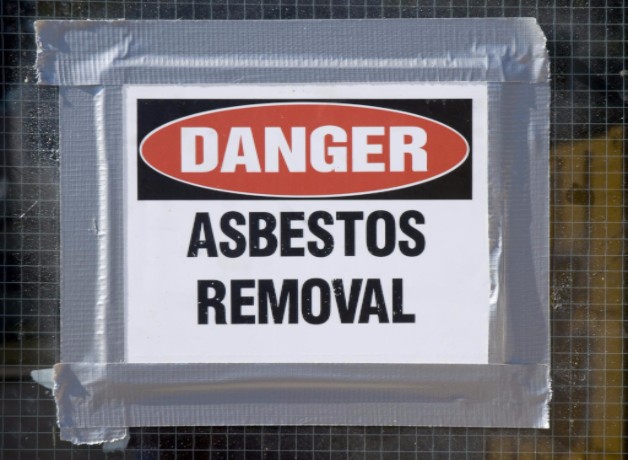
A 2023 study published in the Journal of the American Medical Association (JAMA) recently identified 52 cases of an irreversible and potentially fatal lung disease called silicosis among workers in California who fabricate quartz countertops. Of these workers, 10 have died and 3 have required lung transplants. The study estimates that around 100,000 workers in the U.S. are potentially at risk.
What is silicosis?
Silicosis is a chronic lung disease that can occur when fine silica dust particles are inhaled over time. Silica is used in a wide range of applications, including the production of countertops, glass, ceramics and concrete. It’s also used as a filler in products like paint and rubber.
When materials like quartz countertops containing silica are drilled, cut, crushed or ground, they release fine silica dust into the air. These particles can be so small that they’re not visible to the naked eye, and once airborne, they can be inhaled into the lungs.
Unlike larger particles, which are generally filtered out by the nose and throat, fine silica particles can penetrate deep into the lungs and lead to inflammation and the formation of fibrous tissue, a condition known as fibrosis. Over time, this fibrosis can impair lung function, reducing the lungs’ ability to take in oxygen and expel carbon dioxide, and ultimately lead to death.
What are the signs of silicosis?
The symptoms of silicosis can vary depending on the duration and level of exposure to silica dust. However, common symptoms may include:
- Persistent cough with sputum
- Shortness of breath or difficulty breathing
- Fatigue or weakness
- Chest pain
- Loss of appetite
As the disease progresses, it may lead to more severe respiratory issues, including respiratory failure. Early diagnosis and medical intervention are critical, so if you’ve been exposed to silica dust and are experiencing any of these symptoms, it’s important to consult a health care provider for diagnosis and treatment.
Why are we just now learning about the dangers of silicosis associated with quartz countertops?
According to a report published on nbcnews.com, sales of quartz countertops have risen over 600% in the last 10 years due to their durability and low maintenance. This increased demand has meant that many countertop manufacturers have pivoted from marble or granite to focus on quartz countertop production.
One problem with this is that quartz contains about 90% silica. By comparison, natural stones like granite are typically less than 30% silica. Due to the high concentration of silica in quartz countertops and their recent surge in popularity, it’s really no surprise that silicosis cases are also rising among workers who manufacture these products.
It should be noted that household use of quartz countertops poses no inhalation risks, except possibly during the installation process.
Colorado Workers’ Compensation: Mesothelioma & Asbestos Exposure
How job-related cancers are a growing problem and what you can do about it.
How long does it take for symptoms of silicosis to appear after exposure?
According to the Cleveland Clinic, workers typically don’t develop symptoms of silicosis until they’ve been regularly exposed to silica dust for 10 years or more. However, this timeframe can vary depending on the amount and concentration of silica dust workers are exposed to and whether they consistently wear masks to minimize their exposure.
What’s being done to protect workers from silicosis?
Efforts to protect workers from silicosis are multi-faceted and involve contributions from government agencies, employers, and workers themselves. Here are some of the key initiatives:
- Government regulations
- Occupational safety standards. Agencies like the Occupational Safety and Health Administration (OSHA) set safety standards that limit the permissible exposure limit (PEL) for respirable crystalline silica. They also conduct inspections and audits to ensure that businesses comply with safety standards, and they can levy fines and sanctions against companies that violate those standards.
- Research and data collection. Bodies like the Centers for Disease Control and Prevention (CDC) research occupational health risks, including silicosis, and provide data to help refine safety guidelines.
- Employer responsibilities
- Safety equipment. With only a few exceptions, employers are responsible for providing personal protective equipment (PPE), such as masks and respirators.
- Safety training. Workers should be educated about the risks of silica exposure and trained on how to use PPE and other safety equipment correctly.
- Engineering controls. Employers are encouraged or required to use machinery and tools that minimize dust production. This can include water sprays, local exhaust ventilation, and dust collection systems.
- Health screenings. Regular health checks, including X-rays and lung function tests, should be offered to monitor workers for early signs of silicosis.
- Worker involvement
- Safety training and PPE. Workers are often given training programs to better understand the risks associated with silica exposure and how to protect themselves. They should adhere to all safety rules and wear the required PPE to prevent silicosis.
- Whistleblower protections. Legislation often protects workers who report unsafe conditions, thereby encouraging a culture of safety and compliance.
By combining regulatory oversight with proactive measures from employers and awareness and education among workers, these initiatives aim to reduce the incidence of silicosis and protect workers’ health.
Protecting Workers from Silica Hazards in the Workplace Video
Are workers who develop silicosis entitled to compensation in Colorado?
Yes, in Colorado, most employers are required to provide workers’ compensation insurance for their employees in the event of a work-related injury or the development of an occupational disease or illness.
This means that most employees who develop silicosis from exposure at work will be entitled to workers’ comp benefits for medical expenses and lost wages. Certain dependents are also entitled to death benefits in the event that a family member dies from a work-related injury or disease.
However, to qualify for these benefits, it’s essential that employees (or their families in the event of a fatality) follow all necessary steps, including reporting the injury or illness to the employer within 10 days of the incident or discovery of the disease.
Additionally, given the severity of silicosis, it’s strongly advised that affected workers contact an experienced work injury attorney to ensure their rights are adequately protected. They can help ensure you meet all reporting requirements and deadlines and handle all negotiations with the insurance company to ensure you get the maximum compensation possible.
Did you develop silicosis after working in a Colorado factory? Our Denver work injury attorneys can help.
If you’ve been working in an industry that exposes you to silica dust and are experiencing symptoms like persistent coughing or shortness of breath, it’s crucial to act now. The experienced workers’ compensation attorneys at Babcock Tucker will fight for your rights and help you get the compensation you deserve.
Schedule a free consultation with one of our knowledgeable attorneys today to find out how we can help.





